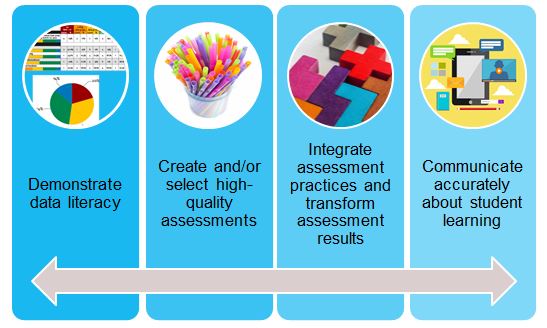The following article was contributed by Kara Bobowski of NWEA.

For any assessment to truly serve its purpose, teachers must be able to interpret and apply the data to help student learning. After all, helping students grow to their fullest potential is the whole point of having an assessment system. By using assessment data to inform instruction, your teachers can help every kid learn—no matter where they are currently performing academically.
Many teachers enter the classroom with little to no education about using assessment to inform instruction. To make a school or district investment in assessment pay off for everyone—especially students—you need to make teacher assessment literacy a priority, and incorporate it throughout the school year.
What do we mean by assessment literacy? At NWEA, our definition is an educator who has the knowledge and skills needed for effective use of assessment practices, tools, and results to support learning.
When educators are assessment literate, they are informed, reflective, and proactive practitioners. Assessment-literate educators:
- Demonstrate data literacy.
- Know how to create and select high-quality assessments.
- Know how to integrate assessment practices and assessment results into action.
- Know how to communicate accurately about student learning.
Assessment literacy is a passion of ours at NWEA. Misunderstanding the purpose of different types of assessments, what they are measuring, or the data that results can have real consequences for students. Students can be categorized incorrectly, they can miss opportunities for enrichment, and their skill gaps can go unrecognized.
We are committed to helping teachers become more assessment literate in a variety of ways. You can learn more about helping your teachers develop assessment literacy in this webinar, Defining Assessment Literacy, Thursday, March 30th.
Or, check out our other posts under Assessment Basics or some of the free resources over at AssessmentLiteracy.org.
A new feature for this NCEA webinar will be the use of Twitter for chatting during the webinar. If you don’t already have a Twitter account, you may want to get one prior to the webinar. We’ll be using #NCEAWebinars for chatting. Join us in continuing the conversation!
NWEA Account Executive for Catholic Schools Diane Cronin will present at the NCEA Convention & Expo April 18—20 in St. Louis.